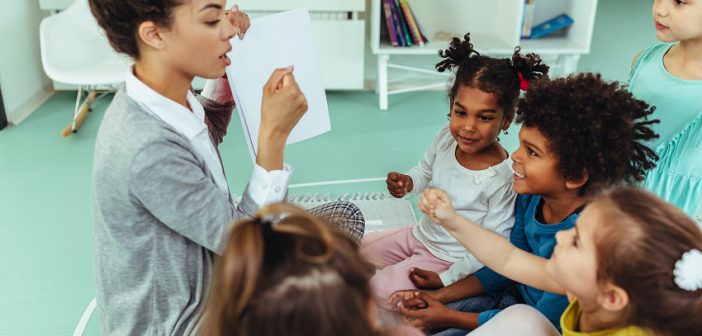Private school is one of the most common alternatives to public education. The schools offer a variety of things to consider.
The lack of standardization and federal funding has many advantages and disadvantages. Here are the top five pros and cons for you to consider when deciding on your child’s education.
Pro: Smaller Classes
Private schools have fewer students enrolled than public schools, allowing for smaller class sizes. A smaller class means your child would get more one-on-one attention, helping them better understand the material.
Small classes mean teachers can better cater lessons with your child’s needs in mind. Their teacher would be less stressed throughout the day with fewer kids to look after, increasing your student’s chance of an enjoyable day.
Students sometimes feel overwhelmed by larger classes and isolated from the other students. Having a smaller class means it’s less likely that your child would feel ignored and more likely that the teacher would notice any bullying or isolation.
Con: Competitive Enrollment
Good private schools tend to have long wait lists thanks to small class sizes and high demand. While the demand for public schools has varied in recent years, more parents are choosing these schools for their children.
If you have your heart set on a private school, it may be months or even years before your child can attend.
Applying as early as possible is the best way to get your child into your desired school without an extended wait.
Pro: Flexible Teaching Styles
Many public schools have requirements for how teachers can present materials to students and what materials they need to teach.
Private schools don’t have to stick to government-recommended teaching methods and curricula. This gives teachers more opportunities to cater their teaching style to the students in their class, creating a more effective learning experience.
Teachers also can tweak their curriculum for their class’s needs. It also lets them implement soft skills that can benefit your child later in life.
Con: Lack of Teacher Qualification Regulations
There’s a lack of regulation for private school teachers. That means that many schools get to set their criteria for their hires.
You want to ensure that your child’s teachers have had a quality education and achieved teaching success. It’s much easier to do in the public school system.
When looking at private schools, check with administrators about their school’s hiring process to make sure your child’s teachers would be well-qualified to be in the classroom.
Pro: More Class Options
Many private schools offer classes and extracurricular activities your child might not get in public school.
While public schools offer extracurricular activities, funding issues can lead to a lack of variety. This makes your child less likely to find a sport or educational program they enjoy.
In private school, your child is more likely to get unique elective classes, music and sports programs and academic opportunities.
Con: Teachers are Paid Less
Private schools tend to have a lower teacher salary compared to public schools.
Teachers are a necessary part of society that people take for granted. Part of this could be due to the school trying to keep tuition low or lesser qualified teachers.
It’s safe to assume that well-qualified teachers will go to public schools to living on a more comfortable salary.
Pro: Newer Technology
Technology is now permanently integrated into your child’s learning experience. Laptops or tablets are a large part of lessons after the height of the COVID-19 pandemic; your child will be using technology regularly to learn.
Some private schools have more significant funding than public schools to provide up-to-date technology, reducing the likelihood of frustrating crashes of slow programs.
With the latest technology, your child will be better prepared to use those technologies in the real world and adapt to technological advances more quickly.
Con: The Price
The private school requires you to invest your own money into your child’s tuition. The average price of private school tuition is $12,119 in the United States.
Can you comfortably afford private school tuition and the extra costs that may arise throughout the year?
Due to the price of private school, you like won’t find many lower or middle-class families attending.
Pro: No Tax Payer Money
Private schools don’t rely on taxpayer money, mainly funded through tuition. This takes a burden off the community and allows that money to go to other community improvements.
When a city struggles, private schools can be an answer to quality education while repairing roads, implementing new programs and investing in neighborhoods.
Since they’re not taxpayer-funded, private schools don’t rely on the state’s funding.
Con: Lack of Diversity
Between the price and possibly other requirements, your child won’t likely see much diversity in private school.
Sometimes, private schools have income or background requirements to consider your child for enrollment. This alienates children who come are less privileged and will expose your child to only a small percentage of the local population.
If you want your child to experience various cultures and income levels, private school may not suit them.
Sending Your Child to Private School
Choosing your child’s education is a big decision that should consider every schooling option. Different children thrive well in different environments, so selecting the setting is best based on your location, financial situation and child’s comfort.
There are many pros and cons to private school. By looking at them, you’ll be able to make the best decision for your family.





Sending your child to Privat is an important decision that you should not make lightly. Here you get more information technology dissertation help that learn new tips for college taks. There are many pros and cons of sending your child to Privat, and it’s important that you research them thoroughly so you can make an informed decision.
The main pro is that you can choose the best teachers for your child. The cost of sending your child to private school is often lower than the cost of going to public school. This can be especially important if you have a family with more than one child. Try this louvered roof nj for best ideas. Another pro is that you get more personal attention from teachers and other staff members, who may be able to help you with any problems or concerns you have about your child’s education.
For me, the problem with private school is basically that the control is only conditional. But on the plus side you can include the fact that the main problems of schools have been eliminated as much as possible, the same issues of discrimination that has always been one of the main negative points of schools still affect the choice. I read a couple of essays on https://eduzaurus.com/free-essay-samples/discrimination/, which revealed painful memories from the time of study. Such childhood traumas are the most difficult to address as adults and have the greatest impact on later life.